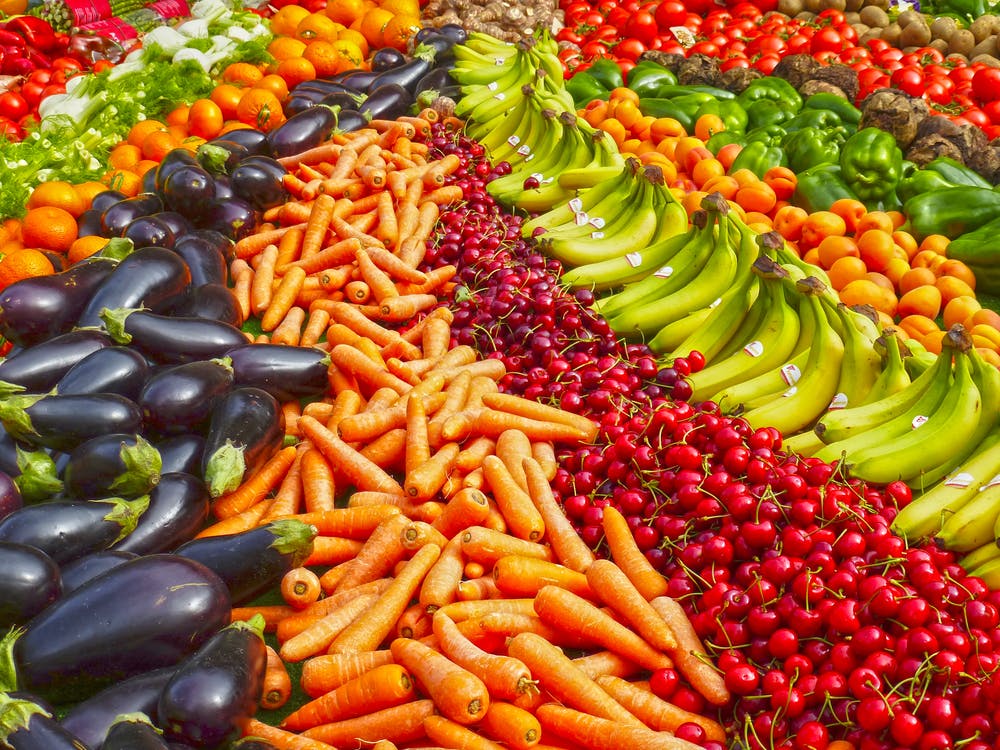The new year brings new food trends with promises to help you stay healthy. Northern Arizona University dietitian and health educator Megan Anderson breaks down these new trends to show what you should and should not try this year to help you be healthier.
Bulletproof Coffee
What it is: A mix of coffee, butter and medium chain triglyceride (MCT) oil that has been sensationalized as a miracle drink for long-lasting energy and weight loss.
Fun Fact: Bulletproof coffee was created by a tech engineer after he drank yak butter tea while hiking in Tibet, not by someone with a background in medicine or nutrition.
Skip It or Try it: Skip it. This coffee will make you feel full because of the fat content, and the butter is high in saturated fats that can significantly increase your risk of heart disease. To incorporate healthy fats into your breakfast and stay full during the morning, add avocado to eggs, peanut butter to toast or nuts and chia seeds to yogurt or oats instead.
New superfoods (jackfruit, moringa, cassava flour, maca)
What it is: Superfoods are (typically) plant-based foods that pack a lot of nutrients into each serving.
New trends include: Jackfruit, a mild fruit that can be used as a meat substitute; moringa, a fruit from the Himalayas filled with protein, vitamins and minerals; cassava flour, made from a root vegetable and can be used as a gluten-free baking option; and maca, a powder ground up from the leaves of a root vegetable that can be added to teas and smoothies.
Skip It or Try It: Try it! Many of these foods can be fun, fresh ways to increase your vitamin intake. Be aware many superfoods that come in a ground or powder form are a highly concentrated dose. If you’re taking any medications, be sure to check with a doctor or dietitian for possible interactions. These foods can be expensive, but you can still be healthy by eating a diet that focuses on whole, plant foods if you can’t afford these.
Turmeric
What it is: A bright yellow spice commonly found in Indian and Asian foods.
Turmeric has anti-inflammatory properties, offering less inflammation and pain for those who eat it regularly. Turmeric can be used in cooking, added to milk or plant milks to make golden milk or taken in capsule form.
Skip it or Try It: Try it! There have been many double-blind studies that demonstrate the safety and effectiveness of turmeric. If you take a supplement, look for one that has the “NSF” logo, signifying a third-party group has certified that the turmeric does not contain harmful contaminants.
Probiotics
What it is: Probiotics are different strains of bacteria found in fermented foods or supplements.
There are up to 500 different species of bacteria living in your gut with types of species varying based on diet. Probiotics are linked to improved mental and physical health outcomes.
Skip it or Try It: Try it! A thriving bacteria colony is known to improve our health. Adding probiotics through pills or fermented foods can be a great way to restore balance to your body’s natural bacteria colonies. Look for foods that contain live and active cultures (typically strains of Lactobacillus and Acidophilus) such as Kombucha, yogurt, kimchi and sauerkraut. For supplements, look for the genus, species, strains of the bacteria, the number of organisms alive by the use-by date and the dose on the bottle. Always pair probiotics with fruits and vegetables as the good bacteria rely on the non-digestible fibers.
Caffeine-infused Foods
What it is: Foods that have had caffeine added to them.
Newer products include caffeine-spiked sunflower seeds, waffles, ice cream and hot sauce.
Skip it or Try It: Skip it. Most caffeine-infused foods are high in added sugars and fats, which might negate your efforts to stay healthy. The caffeine levels in many of these equal two or more cups of coffee, leaving you feeling jittery and anxious or interrupting your sleep. If you’re looking for a quick pick-me-up, stick to coffee or tea-they provide a safe dose of caffeine with some antioxidant benefits.
Detox Diets
What it is: These diets range from a basic healthy diet to unsafe or unhealthy diets like juice cleanses, strange supplements or extreme restriction.
Detox diets change each year but resurface around Jan. 1 with claims of “cleaning out toxins” in the body.
Skip it or Try It: Skip it. There’s little to no evidence that these diets work, with many having adverse effects if the supplements are unsafe or the diet dehydrates you. The liver and kidneys naturally detox your body. Give them a boost by drinking plenty of water, eating a variety of fruits and vegetables, including berries and cruciferous vegetables, and incorporating probiotics into your diet.



